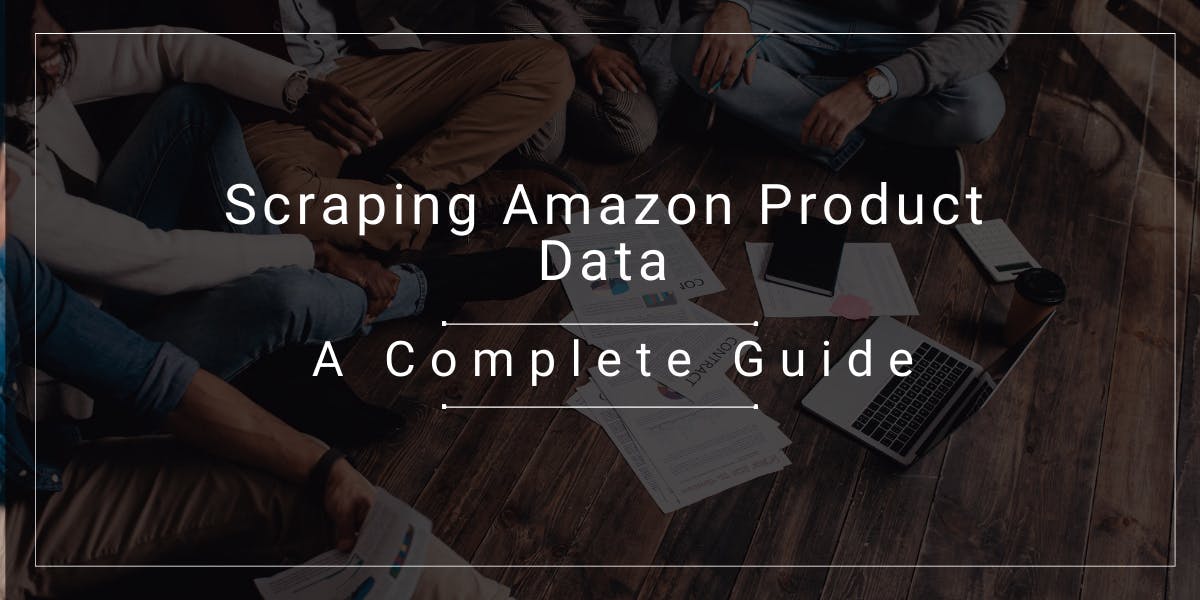E-Commerce Keyword Research: Data Collection Challenges and Solutions
Flipnode on May 08 2023

Online shopping has become more convenient for modern-day customers due to the evolution of e-commerce. In 2019, around 1.92 billion people purchased goods or services online, and this number is expected to grow to 2.14 billion by 2021. The popularity of online shopping surged in 2020 because of store closures and COVID-19 fears. As a result, more businesses are now selling their products and services online, and the e-commerce industry is on the rise.
To succeed in the top e-commerce marketplaces, businesses need to conduct thorough research and acquire knowledge. Developing and maintaining an e-commerce SEO strategy can improve a seller's marketing efforts. Web scraping plays a crucial role in keyword research for e-commerce by collecting large amounts of public data for keyword analysis. However, this process presents challenges in data gathering and maintenance.
What is keyword research?
In the realm of digital marketing, conducting keyword research should be a primary focus for any SEO campaign. This practice involves the identification and evaluation of search terms that online users input into search engines to obtain information about particular subjects. SEO experts utilize these researched keywords in targeted web pages to enhance their positions on search engine results pages. The primary objective is to gain insight into your business's current ranking status and strategize how to increase its visibility.
E-commerce keyword research
An SEO strategy for top e-commerce marketplaces involves conducting keyword research to identify the search terms that can boost sellers' rankings and drive traffic to their product or service pages. Sellers need to consider how customers search for products when choosing keywords for top e-commerce marketplaces. They typically create a list of business keywords that are relevant to their products and categories.
Importance of keyword research
Sellers can benefit from comprehensive research that provides valuable insights into various aspects, such as:
- Competitors and their strategies
- Ideas for content marketing
- Understanding of consumer trends
- Insights into customers' needs
Effective research involves more than just discovering new product keywords. It also requires tracking and analyzing the performance and history of multiple keywords to make data-driven decisions. By understanding how search algorithms operate in e-commerce platforms, businesses can significantly drive their growth.
How to do keyword research for e-commerce?
Let's start by examining the terminology to gain a better understanding of the process of e-commerce keyword research.
Search volume - refers to the number of times a specific search phrase is searched for in a month. If you optimize your web page to align with the top trending phrases, your incoming traffic and potential for conversion are likely to increase.
Competition - is a measure of the difficulty of ranking for a particular keyword. Ideally, your target keyword would have a high search volume and low competition. However, it can be challenging to find such an optimal keyword.
Creating a list of keywords
The subsequent phase involves creating a preliminary set of keywords. The primary objective is to understand the mindset of an average prospective customer. What kind of expressions would a prospective client use when searching for a particular product or service? It is advisable to include a broad range of keywords in the list, varying from single words to phrases of usually up to five words. The greater the number of keywords, the more advantageous it is.
Using dedicated tools
The research process can be simplified by utilizing specialized tools that can automate the process and provide valuable insights that may have otherwise been overlooked.
There is a plethora of scraping tools available to aid in the process, such as web scraping tools. Additionally, all-in-one SEO tools like Semrush and Ahrefs can assist in selecting, managing, and analyzing the most pertinent keywords based on location and multiple search engines. Lastly, search engines themselves provide free tools like the Google Keyword Planner Tool that can be utilized for keyword research.
Finalizing the keyword list
Once all the keywords have been gathered, it is recommended to finalize the list by manually searching for them in search engines. If the top-ranking companies for a certain keyword are dominant players in the business, it would be wise to update the list to avoid such intense competition.
Understanding which web pages rank for a specific keyword is crucial in determining your potential position among them. Some top-trending keywords may not be worth the effort, while others with less exposure could be a niche where you could excel.
Keyword research for e-commerce requires a balancing act of multiple variables and compromises. A combination of tools and efforts should award you with a suitable ranking. In a saturated market, appropriate keyword implementation is crucial if your business does not offer a unique product or service that lacks or defies competition.
Types of e-commerce keywords
At this point, you should have a good understanding of the importance of keyword research. It's worth noting that there are several types of e-commerce keywords, including product and service descriptions, competitor keywords, and audience terms. Let's take a closer look at each of these types to see what kind of public data can be collected for keyword analysis.
Product and service keywords
The description of a product or service is crucial for various reasons. Firstly, it provides an opportunity for sellers to attract potential customers and persuade them to make a purchase. Secondly, it allows sellers to include keywords that could not be incorporated into the product title. Without optimizing the titles and descriptions with relevant keywords, the product page will have a lower chance of appearing in search results.
Sellers need to use keywords that make their product or service relevant to the queries potential clients are searching for. To achieve this, gathering public data on how specific search results change with different queries can help sellers understand which keywords to use in their descriptions.
Monitoring competitors
Valuable insights can also be gained by analyzing the keywords and terms used by competitors. It's crucial for sellers to keep a close eye on their competition to stay informed about market trends.
Public data about competitors can be collected from top e-commerce websites for analysis purposes only, and should not be used for unethical practices such as copying their content or other malicious intents.
Audience terms
Audience terms can provide sellers with valuable insights into the additional interests of potential customers that may not have been previously considered. By incorporating relevant audience terms into product descriptions, sellers can increase traffic to their product pages. For example, a seller offering cake decorating products may find that keywords related to gifts or parties are also relevant to their customers.
However, it's not always feasible to include all relevant keywords in the description. This is where additional fields in seller account on top e-commerce platforms come in, allowing sellers to enter "hidden keywords."
The process of finding relevant keywords is based on collecting public data and analyzing it. Analyzing how search results change with different queries is the most common method used to identify potential keywords.
Web scraping for e-commerce keyword research
In short, web scraping, particularly with Python, is a popular approach to gathering public data from e-commerce websites. With the help of data gathering bots, the process of requesting and extracting data from target websites is automated, enabling data collection on a large scale within a short period.
For sellers who aim to achieve high product rankings, gathering public data from relevant categories is sufficient as analyzing competitor rankings can improve revenue. In this case, using in-house web scrapers powered by the right proxy type can ensure a seamless data collection process.
However, sellers often opt to outsource e-commerce scraping services as they may lack the necessary expertise, resources, or time. Service providers continuously collect data for their clients, facing various challenges due to the amount of data needed.
E-commerce scraping challenges
Gathering data on a large scale from prominent e-commerce marketplaces can be a challenging task for service providers. We have identified some of the most common obstacles they may face.
Overcoming bot detection measures: Leading e-commerce websites frequently deploy security measures to obstruct malicious bots. These measures are often unable to distinguish between the intentions of visitors, and thus, well-behaved web scraping bots that gather data on e-commerce keywords may be wrongly detected, leading to inevitable blocks.
Accessing geo-restricted data: Keyword research is frequently location-specific, and certain keyword data may not be accessible from different regions. This can result in incomplete and ineffective research.
Processing gathered information: The process of processing gathered data is known as data parsing. Due to the constant changes in the layout of leading e-commerce marketplaces, parsing could become increasingly complex.
Solutions to deal with e-commerce scraping challenges
Dealing with challenges related to data gathering can be a difficult task. However, there are different ways that service providers can approach web scraping.
When using in-house web scrapers, it is crucial to note that proxies are almost always required for web scraping projects, especially when dealing with large-scale data operations. Proxies allow content to be accessible worldwide, meaning that all data is accessible, regardless of its geo-location. Proxies are also used to avoid IP blocks. Residential proxies are less likely to be blocked due to their ability to resemble organic users.
Employing third-party web scraping services can provide clients with an in-depth e-commerce keyword and ranking analysis and saves them time to deal with web scraping challenges. However, outsourcing such services may seem costly, and finding a reliable provider may take time. Therefore, each company should evaluate its resources, budget, and needs before deciding which approach suits them best.
Conclusion
Every year, online shopping continues to gain popularity. By gathering data from leading e-commerce marketplaces and using keywords effectively, sellers can make data-driven decisions, rank higher in search results, and improve their content strategy. These factors contribute to increasing customer numbers and revenue.
Collecting public e-commerce data on a large scale is a challenging task. Overcoming anti-bot measures, processing vast amounts of data, and accessing geo-restricted information are some of the obstacles. To simplify the process, reliable proxies or high-quality data extraction tools can be used. However, businesses must decide which approach is best suited for them: managing and maintaining in-house web scrapers or outsourcing third-party tools.



